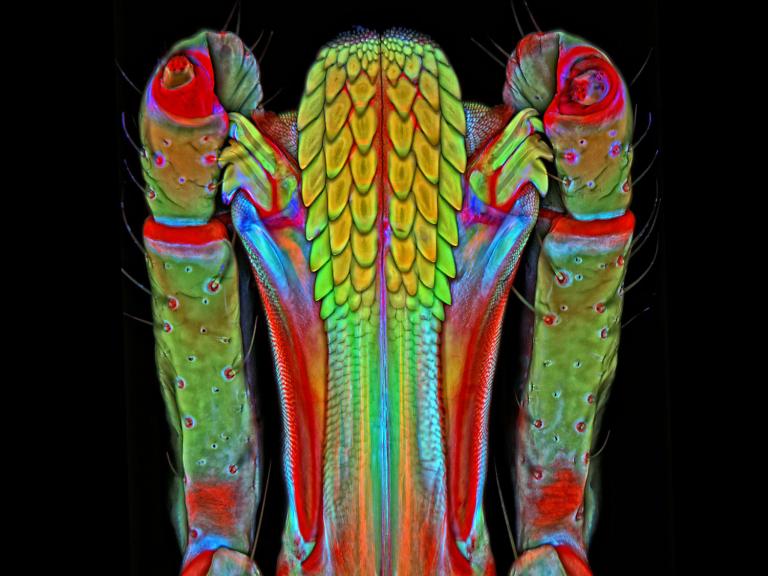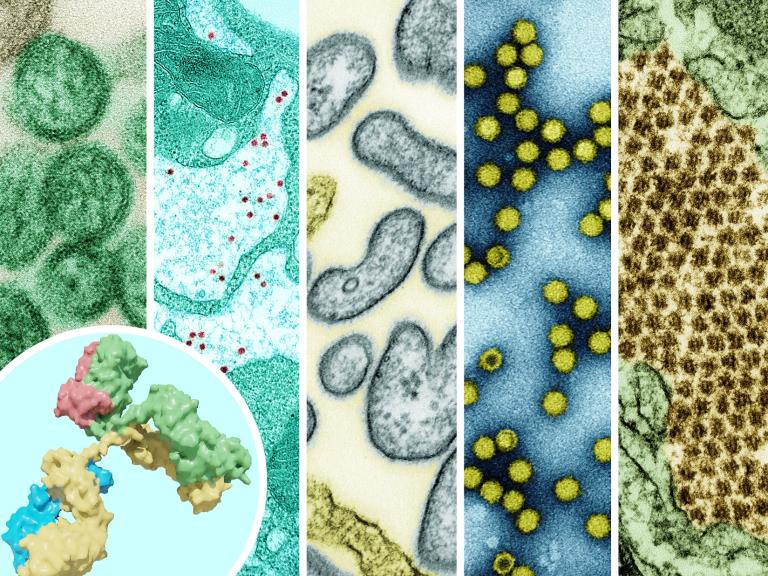Sample application (R15): Artem Domashevskiy
Last Reviewed: November 29, 2022
Last Reviewed: November 21, 2023
Tickborne Diseases Information for Researchers
NIAID is conducting and supporting research to find better ways to diagnose, treat, and prevent tickborne diseases (TBD) as well as ways to control the tick populations that transmit microbes.
Highlights

NIH Strategic Plan for Tickborne Disease Research
The NIH Strategic Plan for Tickborne Disease Research proposes building on current trans-NIH efforts to better understand the complex interplay among host, tick, and pathogen factors that contribute to tickborne diseases and the body’s defenses against them. The plan aims to leverage this understanding to develop new tools that can more effectively prevent, diagnose, and treat TBDs.

NIH Awards Establish Pandemic Preparedness Research Network
The Research and Development of Vaccines and Monoclonal Antibodies for Pandemic Preparedness network—called ReVAMPP—will focus its research efforts on “prototype pathogens,” representative pathogens from virus families known to infect humans, and high-priority pathogens that have the potential to cause deadly diseases. The pandemic preparedness research network will conduct research on high-priority pathogens most likely to threaten human health with the goal of developing effective vaccines and monoclonal antibodies.
Support for Research
Resources for Researchers
NIAID offers resources such as technologies available for licensing or collaboration, computer applications, and other tools and services to the general scientific community to advance basic, preclinical, and clinical research. See all resources for tickborne disease researchers.
For researchers developing products such as diagnostics, vaccines, or drug therapies, NIAID provides repositories, genomics and bioinformatics services and tools, preclinical studies, and clinical evaluation that support each stage of the product development pathway. Read more about NIAID's support for infectious disease product developers.
Funding Opportunities
Contact the following staff within the Division of Microbiology and Infectious Diseases to learn about possible funding opportunities:
- Dr. Sam Perdue, Chief, Basic Sciences Section, Rickettsial and Related Diseases Program Officer, Bacteriology and Mycology Branch
- Dr. Nadine Bowden, Lyme Disease Program Officer, Bacteriology and Mycology Branch
- Dr. Adriana Costero-Saint Denis, Program Officer, Vector Biology, Parasitology and International Programs Branch
Meetings Reports
- Incorporating Systems Biology to Vector-Borne Pathogen Research: Current Landscape, Challenges, and Opportunities, May 17–18, 2022
- Targeting the Parasite within the Vector: Exploring Novel Approaches to Prevent Transmission of Vector-Borne Diseases, July 20-21, 2021
- Driving Success in Vector Control Product Development for Public Health: The Critical Roles of Preferred Product Characteristics (PPC) and Target Product Profile (TPP) Documents, June 26, July 2, and August 6, 2020
- Vector Control Product Development Pathway: Phase-Dependent Evidence Gathering, June 24-25, 2019
- A Primer For The Design And Conduct Of Clinical Trials For Vector Interventions, May 7-8, 2018
Connect with Other Researchers
Search for scientists at NIAID who research tickborne diseases in the scientist directory.
Search for scientists funded by NIAID who tickborne diseases on RePORTER.
Follow Us on Social Media
Last Reviewed: September 22, 2022
Immunology Interest Group (IIG) Newsletter September
Last Reviewed: October 6, 2022
Last Reviewed: August 28, 2024
Last Reviewed: July 12, 2022
IIG Newsletter April 2022
Last Reviewed: May 5, 2022
Last Reviewed: February 20, 2025
February 2022 Immunology Interest Group (IIG) Newsletter
Last Reviewed: March 8, 2022
Sample application (SBIR Fast-Track): Coleman
Last Reviewed: November 25, 2022
Sample Application: Ratner Full Application
Last Reviewed: August 6, 2019
The Jordan Report: Accelerated Development of Vaccines 2007
Last Reviewed: August 6, 2019
Last Reviewed: January 13, 2025
Published: April 25, 2022
Last Reviewed: November 14, 2024
Last Reviewed: March 11, 2025
Last Reviewed: March 22, 2024
Immunology Interest Group (IIG) Newsletter March
Last Reviewed: April 7, 2021
Last Reviewed: March 6, 2024
Last Reviewed: June 28, 2022
Last Reviewed: December 2, 2024
Last Reviewed: August 9, 2022
Last Reviewed: September 22, 2022
Last Reviewed: September 28, 2022

